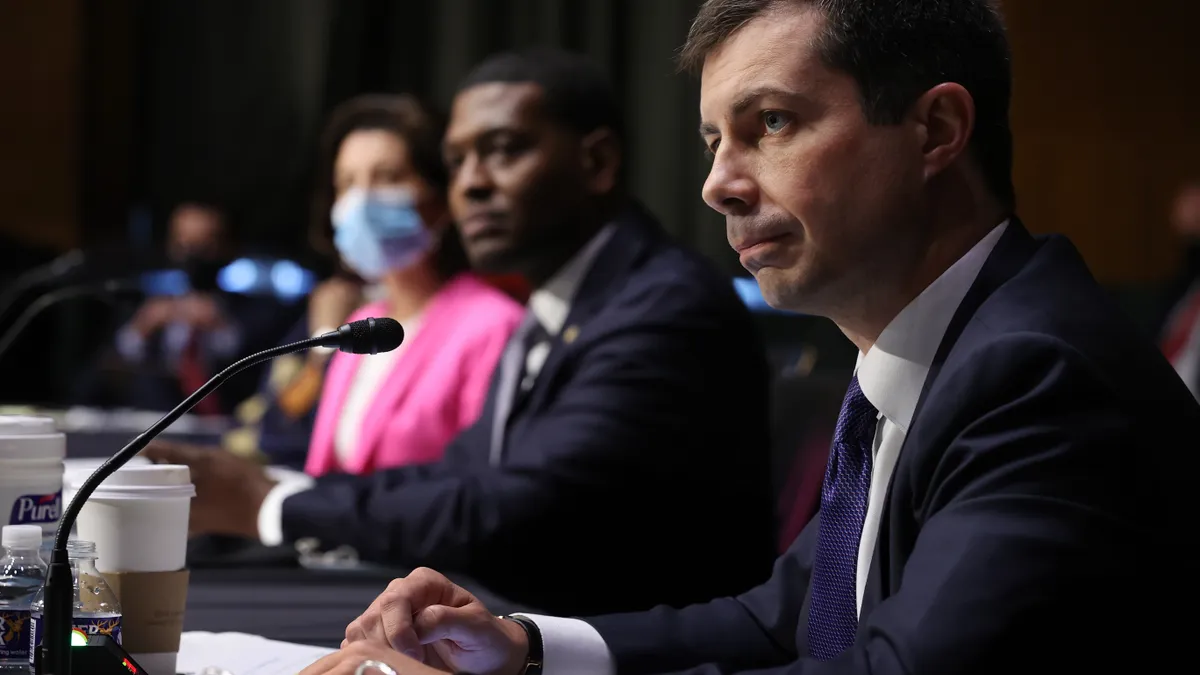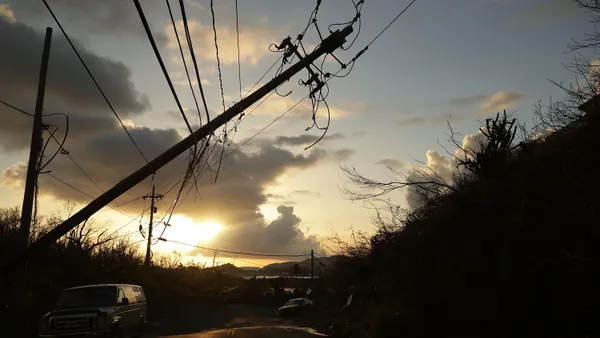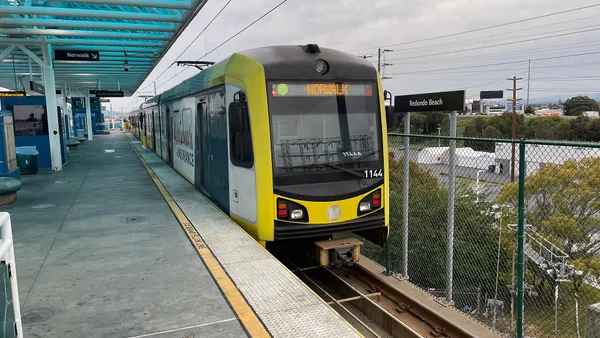Dive Brief:
- Transportation Secretary Pete Buttigieg told the U.S. Senate Appropriations Committee at a hearing Tuesday that measures to prevent climate change were integral to the success of the infrastructure projects in President Joe Biden's $2.3 trillion American Jobs Plan.
- In his opening statement to the committee, Buttigieg noted that some critics of the climate elements of the plan said the spending proposal should address only assets like roads and bridges but pushed back against that opinion by comparing it to "drawing up plans for a new restaurant with no consideration for health, safety or cleanliness. The truth is that every infrastructure decision is already, inevitably a climate decision as well."
- Buttigieg also told the committee that the plan is the biggest jobs investment since World War II and that 40% of the plan's climate investments would go to "overburdened and underserved communities, who often bear a disproportionate burden of transportation pollution."
Dive Insight:
Other points Buttigieg highlighted for the committee about the American Jobs Plan were that:
- More than 20,000 miles of roads and 10,000 bridges would be improved.
- Passenger rail would see an expansion.
- The country would achieve net zero carbon emissions by 2050.
- There would be an "electric vehicle revolution" supported by a network of 500,000 electric car chargers installed across the country and by rebates on electric vehicle purchases.
- There would be a doubling of investment in public transit.
- Investment in resiliency would "reinforce, upgrade or realign existing transportation infrastructure to better withstand extreme weather events and other effects of climate change."
Several other senior administration officials spoke at the hearing, including Commerce Secretary Gina Raimondo, Secretary of Housing and Urban Development Marcia Fudge and Michael Regan, administrator of the Environmental Protection Agency.
The Biden administration has faced opposition from congressional Republicans on how it plans to pay for the bill. The president has suggested raising the corporate tax rate from 21% to 28%.
In addition, the plan includes the controversial PRO Act, which won the approval of the Democratic Congress but still does not have enough votes yet to win the Senate. Proponents of the PRO Act did score a recent victory with West Virginia Democrat Sen. Joe Manchin's co-sponsorship of the legislation. Manchin previously had hedged on offering his support.
The PRO Act would expand unionization rights and amend the National Labor Relations Act to tighten up the definition of an independent contractor by using a stricter test.













